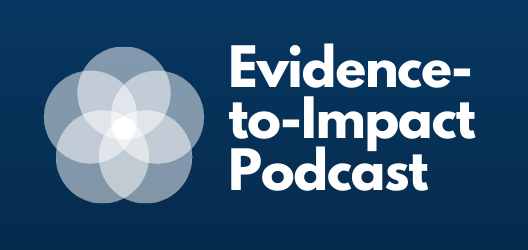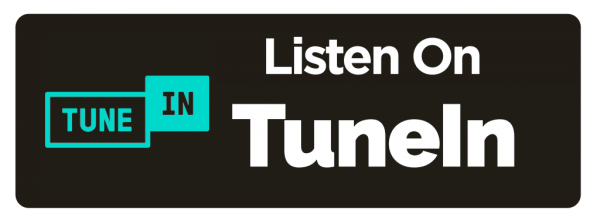
Episode Overview
As the nation begins to “reopen” and the economy begins shifting, many states have begun ending pandemic-era unemployment insurance benefits. For many, unemployment insurance was the only thing keeping them afloat following the unprecedented unemployment crisis at the beginning of the pandemic. And yet, despite the unbelievable numbers of unemployed workers in our country, the stigma of receiving unemployment insurance persists. We asked ourselves why, in a time of tremendous health and economic crisis, are we giving folks who need help a hard time? We know that research shows that many families and individuals are still out of work and struggling to afford adequate food and pay mortgages or rent. Like other topics we covered – childcare and food insecurity, for example – the pandemic has made it abundantly clear that our country’s systems are unsustainable and not enough to support the financial needs of families and individuals.
To debunk some of the concerns and myths of unemployment and dive into the shifting economy, we spoke to Sarah Damaske, Ph.D., Associate Professor of Labor and Employment Relations, Sociology and Women’s Studies at Penn State and Associate Director of thePopulation Research Institute (PRI), and Mark Price, Ph.D., Associate Director of Research at the Pennsylvania State Education Association (PSEA). We discussed the stigma of experiencing unemployment or receiving unemployment insurance, how and why men and women experience unemployment differently, wage stagnation in the education sector, and more.
We encourage listeners to also check out Sarah’s new book, The Tolls of Uncertainty: How Privilege and the Guilt Gap Shape Unemployment in America. While it is not required reading for this episode, it does paint a picture of pre-pandemic unemployment and provides salient policy recommendations to our unemployment system.
Episode Resources and Notes
- Sarah’s new book, The Tolls of Uncertainty: How Privilege and the Guilt Gap Shape Unemployment in America, is out now. Buy it through Princeton University Press or on Amazon.
- Sarah and Mark mention the work of Kathryn Edwards, an economist at the Rand Corporation.
- Sarah mentions the Great Depression-era photographs by Dorothea Lange as inspiration for her book. You can find more of Dorothea Lange’s work here.
Key Information
SourceEvidence-to-Impact Collaborative
Publication DateJuly 11, 2021
Resource TypeAudio
Recent Podcast Episodes
Share This Page
Episode Overview
As the nation begins to “reopen” and the economy begins shifting, many states have begun ending pandemic-era unemployment insurance benefits. For many, unemployment insurance was the only thing keeping them afloat following the unprecedented unemployment crisis at the beginning of the pandemic. And yet, despite the unbelievable numbers of unemployed workers in our country, the stigma of receiving unemployment insurance persists. We asked ourselves why, in a time of tremendous health and economic crisis, are we giving folks who need help a hard time? We know that research shows that many families and individuals are still out of work and struggling to afford adequate food and pay mortgages or rent. Like other topics we covered – childcare and food insecurity, for example – the pandemic has made it abundantly clear that our country’s systems are unsustainable and not enough to support the financial needs of families and individuals.
To debunk some of the concerns and myths of unemployment and dive into the shifting economy, we spoke to Sarah Damaske, Ph.D., Associate Professor of Labor and Employment Relations, Sociology and Women’s Studies at Penn State and Associate Director of thePopulation Research Institute (PRI), and Mark Price, Ph.D., Associate Director of Research at the Pennsylvania State Education Association (PSEA). We discussed the stigma of experiencing unemployment or receiving unemployment insurance, how and why men and women experience unemployment differently, wage stagnation in the education sector, and more.
We encourage listeners to also check out Sarah’s new book, The Tolls of Uncertainty: How Privilege and the Guilt Gap Shape Unemployment in America. While it is not required reading for this episode, it does paint a picture of pre-pandemic unemployment and provides salient policy recommendations to our unemployment system.
Episode Resources and Notes
- Sarah’s new book, The Tolls of Uncertainty: How Privilege and the Guilt Gap Shape Unemployment in America, is out now. Buy it through Princeton University Press or on Amazon.
- Sarah and Mark mention the work of Kathryn Edwards, an economist at the Rand Corporation.
- Sarah mentions the Great Depression-era photographs by Dorothea Lange as inspiration for her book. You can find more of Dorothea Lange’s work here.
Key Information
SourceEvidence-to-Impact Collaborative
Publication DateJuly 11, 2021
Resource TypeAudio
Recent Podcast Episodes
Share This Page
LET’S STAY IN TOUCH
Join the Evidence-to-Impact Mailing List
Keep up to date with the latest resources, events, and news from the EIC.













